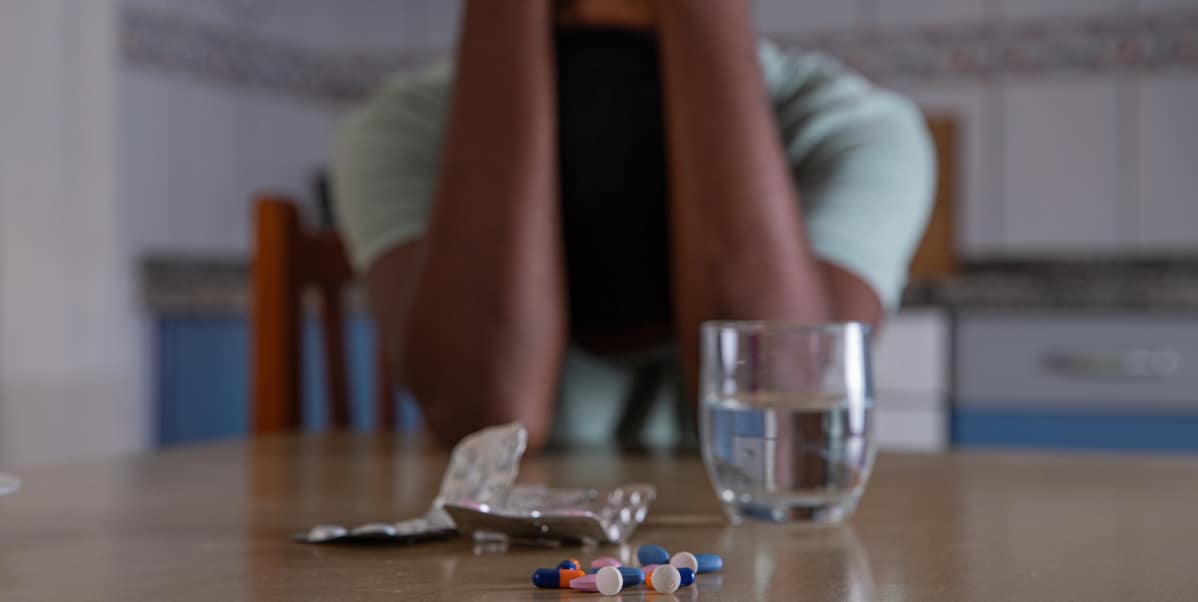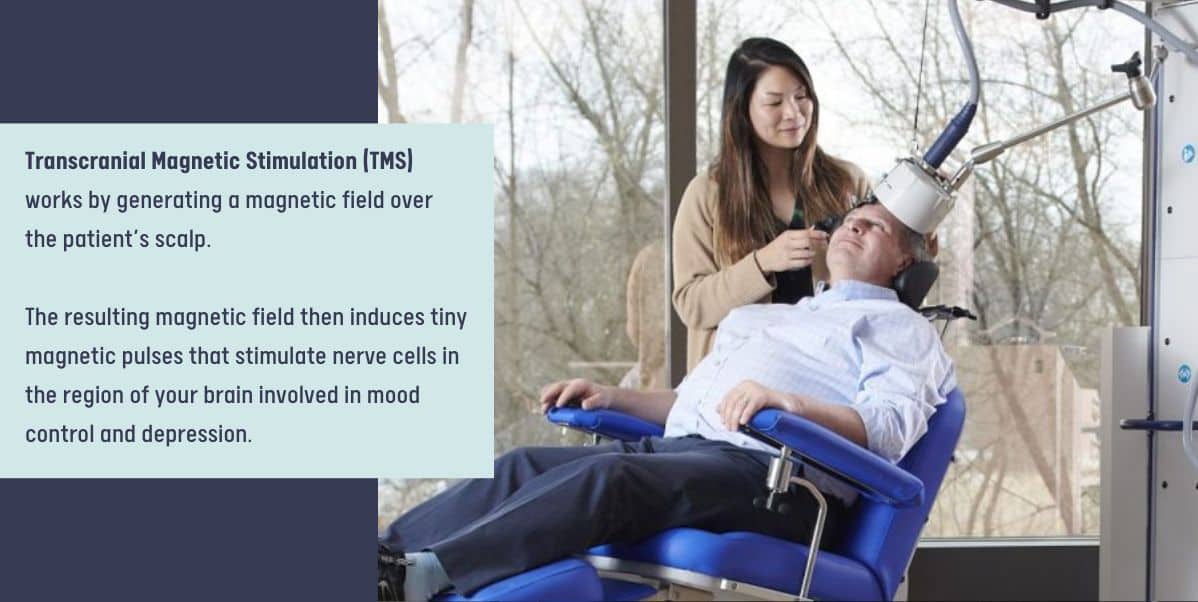
According to a study published by the National Library of Medicine, when it comes to treating depression, antidepressants have a 50% success rate. Even so, out of the people who find relief after using antidepressants for depression treatment, half of them end up relapsing, reducing the recovery rate to 25%. Additionally, depression medications often come with many side effects, such as weight gain, emotional blunting, and sexual dysfunction.
It can be difficult to seek help for depression, especially if medication is not something you feel comfortable using. The good news is that there’s still hope. There are many non-medication methods available to reduce and even treat the symptoms of depression. This article will discuss some of these options.
Regular Exercise Helps Treat Depression
Exercise is considered a powerful and natural option for treating depression without medication. As an alternative option, aerobic exercises are an effective tool for depression management compared to psychotherapy and antidepressants.
Why Exercise Feels Good for the Brain
An exercise as simple as walking can help treat depressive symptoms. According to industry professionals, chemicals such as serotonin and dopamine are released in your brain whenever you exercise. Subsequently, these chemicals make you feel pleasure and happiness.
In addition to immediate effects, such as a “runner’s high”, there are long-term benefits. One such benefit is improved plasticity due to the generation of new brain cells during exercise sessions. This makes the brain more resistant to depression.
A Healthy Diet Helps Fight Depression
One study conducted at the University of Amsterdam in 2017 revealed that individuals who consume a lot of added sugars, red meat, fried foods, high-fat dairy products, and creamy sauces are more likely to suffer from depressive symptoms and depressed moods.
This means that high fat and sugar intake can result in low moods. It also means that fast foods can lead to depressive symptoms. When feeling depressed, you should avoid too much sugar and fat. That begs the question, which foods help fight the symptoms of depression?
Eating fruits, green vegetables, and nuts can help the body fight depression. One study shows that people who consume low quantities of greens and fruits are more likely to suffer from depression.
Additionally, foods rich in omega-3 fatty acids, such as walnuts, can help improve brain function and improve depressive symptoms. Multiple research studies also confirm that Mediterranean diets (fish, vegetables, whole grains, nuts, seeds, berries, and cold-pressed olive oil) are effective for depression treatment.
Meditation Helps Protect You from Depression
Regular meditation is yet another invaluable tool for treating depression without medication. Regular meditation practices can help you get through a depressive episode and prevent you from falling back into another episode.
In one study published in the National Library of Medicine, 63.6% of the subjects reported that regular meditation helped them overcome mental health crises and negative thinking.
Meditation is a body-mind health practice with multiple benefits beyond enhancing your mental well-being. This practice helps maintain a healthy mood, which means managing emotions better, spotting signs of depression early, and stopping these symptoms from worsening.
Meditation entails three simple steps:
- Directing your focus to the present moment (for instance, by noticing your breathing).
- Not judging what you find.
- Bringing back your focus to the present moment whenever you get distracted by thoughts.
When practiced regularly, meditation can help treat depression without medication. The technique is effective against depression because it trains you to be more mindful. Mindfulness empowers you to handle the uncomfortable negative thoughts associated with depression.
Sufficient Sleep Naturally Helps Reduce Depression Without Medication
Another approach to treating depression without medication is sleeping enough. Having a regular sleeping pattern can help decrease depressive symptoms and maintain a healthy mood. There are many things you can do to establish healthy sleeping habits.
According to research, sleep acts as a form of overnight therapy that makes us better at handling strong emotions. About 90% of depressed people also struggle with sleep. Some tend to sleep too much, while others don’t get enough sleep.
Poor sleeping habits can also increase the risk of mild and severe depression. For example, you will notice that poor sleep can make you feel tired and low in mood. It’s often hard to concentrate after a bad night’s sleep. These are all symptoms of depression.
Sleeping better helps improve concentration and regulate emotions. Below are effective healthy sleeping habits that can help treat depression:
- Create a regular sleep pattern by waking up at the same time every day and going to bed at an established bedtime.
- Sleep for at least 8 hours every night.
- Use mood lights at night.
- Take a hot shower before bed.
- Use blue-block screens on your computer monitors.
- Avoid screens 2 hours before bedtime.
- Avoid caffeine intake past noon.
- Have a dark bedroom or use a sleeping mask.
- Unwind 90 minutes before bedtime.
Treat Depression with TMS Therapy

Transcranial Magnetic Stimulation (TMS) is a non-invasive brain stimulation technique that produces long-term changes in mood and behavior. TMS therapy is safe and FDA-approved to treat depression for those with treatment-resistant depression (TRD) and for those who simply don’t feel comfortable with taking antidepressant medication.
Transcranial magnetic stimulation works by generating a magnetic field over the patient’s scalp. The resulting magnetic field then induces tiny magnetic pulses that stimulate nerve cells in the region of your brain involved in mood control and depression.
Important Facts to Keep in Mind
Medication can be an important tool in managing depression, but it’s not a one-size-fits all solution. If you are already taking prescribed anti-depressants for your mental health, don’t stop suddenly – this could potentially increase symptoms instead of helping them.
If you are looking to stop taking medications for your depression, talk to your doctor about adjusting your dosages or exploring other non-medicated options like TMS therapy.
Combining lifestyle adjustments with prescription drugs or other medical procedures like TMS has been proven effective at boosting both physical and emotional resilience against depression – so make sure that no stone is left unturned on the road towards improving your mental health.
Get Professional Treatment for Depression without Medications
If your medications are not helping with your symptoms, you should not feel out of options. You can try the natural remedies discussed above, along with professional TMS interventions. At My TMS, we have a team of professional psychiatrists who are leaders in transcranial magnetic stimulation.
Not only do we offer TMS therapy, but we also provide mental health services at My Psychiatrist. We employ the most up-to-date resources to give the best care possible. You have our full support, whether you need therapy services, medication management, or alternative options like TMS. Click here or call (877) 548-8081 to book your appointment.


